Dental veneers in Turkey: Is it a risk to your dental health?
A professional look at a trend not to be taken lightly
In the last years, the trend known as “Turkey Teeth” or “Dental veneers in Turkey” has been popular on social networks and in the media. The term refers to cosmetic dental treatments, usually performed in clinics in Turkey, which have become popular due to their low cost, quick execution and eye-catching results. However, this trend has a number of concerns unfair prejudice, misinformation and, in many cases, real risks to patients’ oral health.
As professionals committed to aesthetic and functional dentistry, we believe it is necessary to offer a balanced, technical and responsible view on this subject. The aim is not to demonise a region or a professional culture, but rather to to clearly inform about what is really at stake when choosing an aesthetic treatment without proper analysis and follow-up.
What exactly are “Turkey Teeth”?
The term “Turkey Teeth” refers to a type of aesthetic treatment, usually consisting of veneers or dental crowns, carried out in Turkish clinics attended by international, mainly European patients.
The popularity of these treatments increased in parallel with the rise of “hair tourism”, positioning Turkey as a destination for “low-cost medical tourism”.. Many patients travel attracted by competitive prices and the promise of a quick aesthetic transformation, including extreme whitening, highly homogeneous tooth shapes and an ultra-bright appearance.
But behind this trend, there are legitimate concerns that should not be overlooked.
Why should we avoid the widespread use of the term “Turkey Teeth”?
There is a fundamental ethical reason: one cannot generalise or stigmatise all Turkish professionals.. There are excellent dentists in Turkey, many with international training, scientific publications and impeccable ethics, who carry out treatments of the highest standard.
The problem is that the concept has become a sensationalist label.used to refer to extreme or failed treatments, which ultimately affects the reputation of an entire medical community. To use it without context is therefore, a way of professional discrimination.
What are the real risks?
Not all patients who visit clinics in Turkey have a bad experience. However, When treatment is carried out without personalisation, pre-planning and follow-up, the risks increase considerably:
Invasive Treatments
Many patients believe they will receive veneers (thin veneers that are placed over the tooth) and actually receive crowns, which involves aggressively grinding down the natural tooth, sometimes irreversibly.
Lack of aesthetic diagnostic and planning
Many patients believe they will receive veneers (thin veneers that are placed over the tooth) and actually receive crowns, which involves aggressively grinding down the natural tooth, sometimes irreversibly.
Fast-track implementation
Reducing work on both arches (upper and lower) to very few appointments compromises the quality of the result. To perform the treatment correctly, the process between preparation and placement alone requires a minimum of one week to ensure accuracy and naturalness.
How we work?
Our dental aesthetics protocol is based on four fundamental pillars:
1. Photographic and digital diagnostics
We capture intraoral and extraoral images to plan aesthetic harmony, study the smile in movement and simulate results.
2. Personalised mock-up
We first show the patient a realistic aesthetic try-in before we start, where they can visualise the shape, colour and texture of the teeth they will receive.
3. Careful dental preparation
We preserve the natural tooth structure as much as possible, using minimally invasive techniques and high quality materials.
4. Placement and final adjustment
Not only do we place the veneers or crowns, but we also check every occlusal, phonetic and aesthetic contact to guarantee an optimal result.
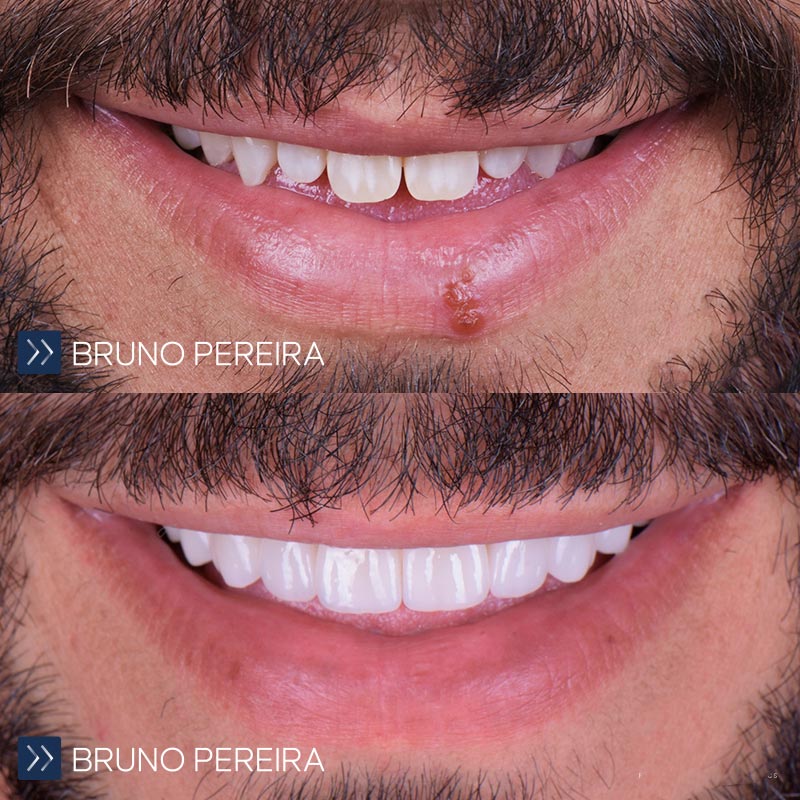
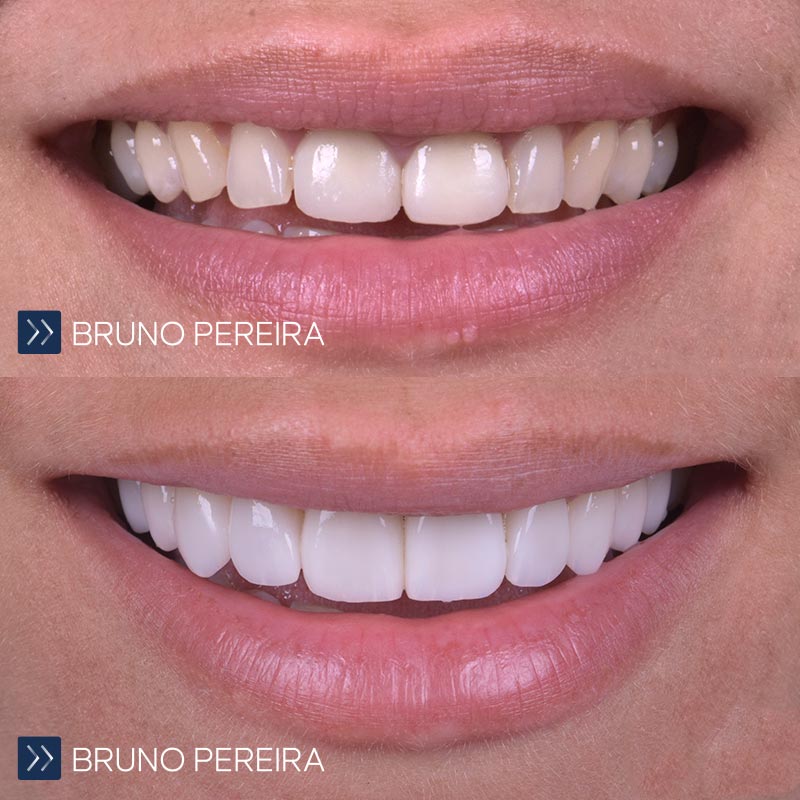
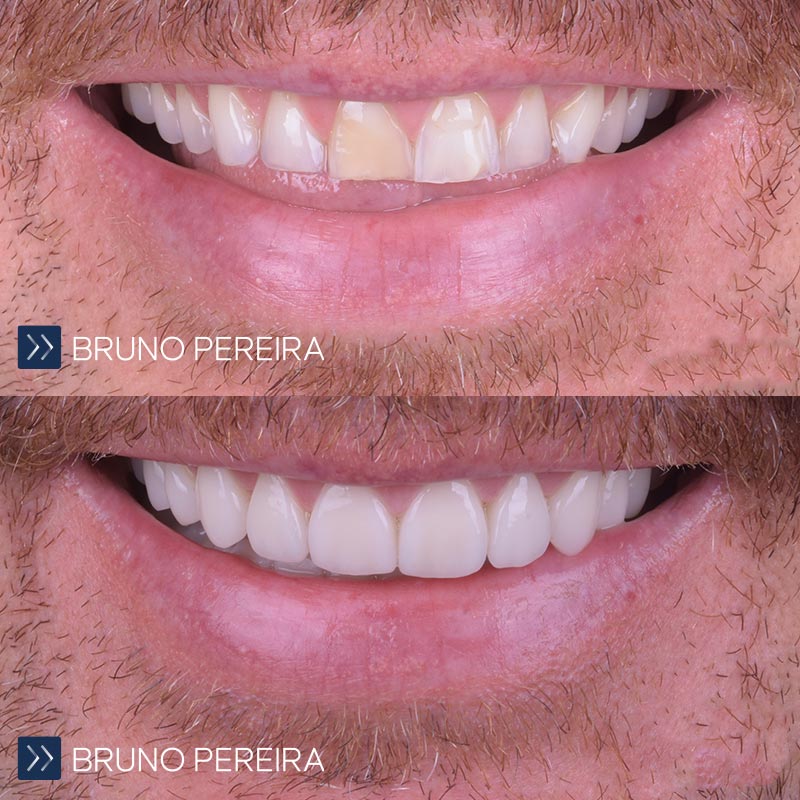
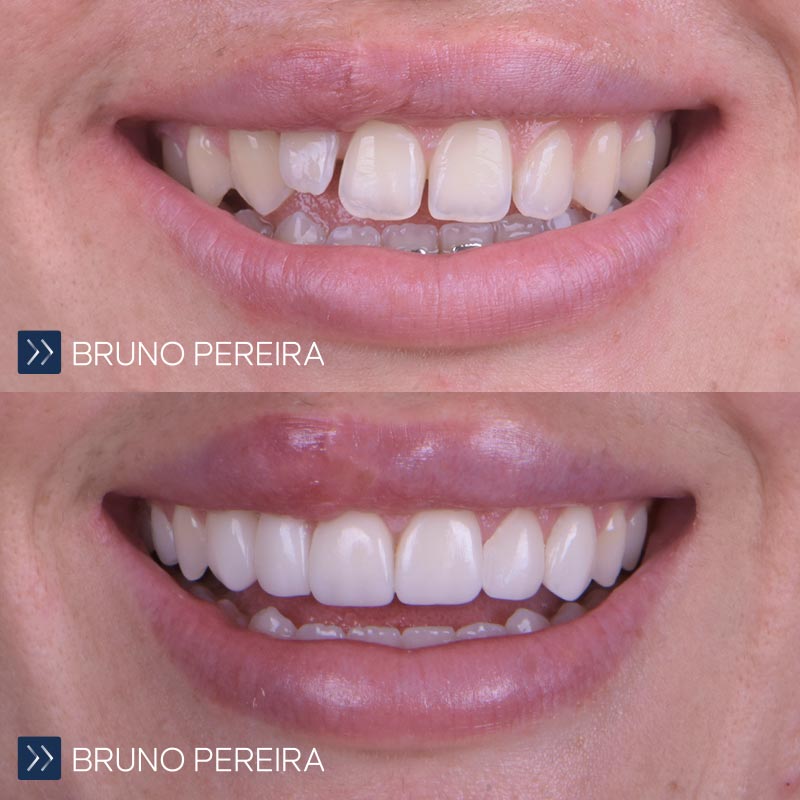
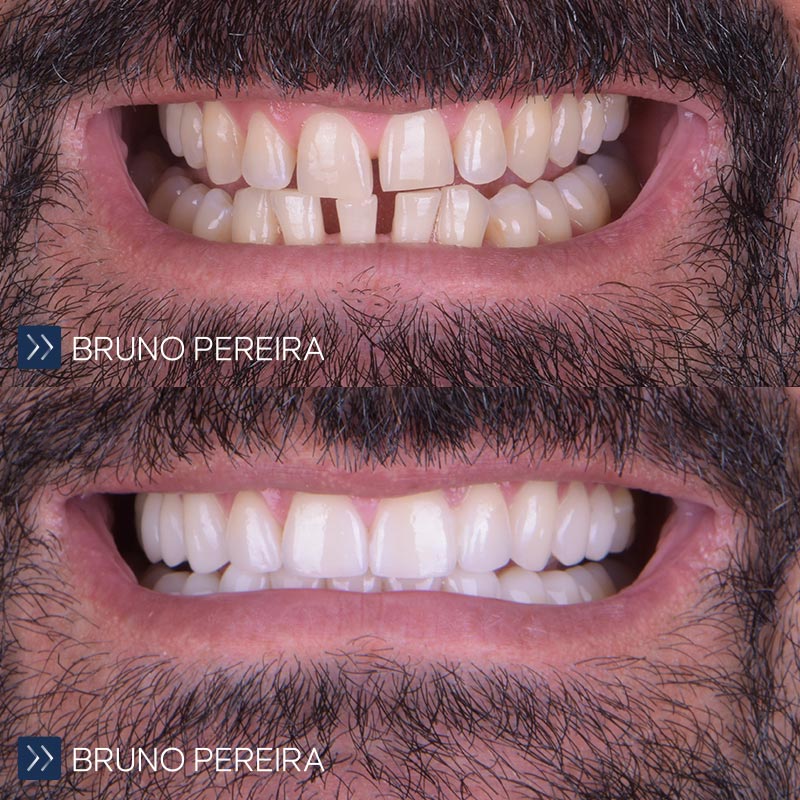
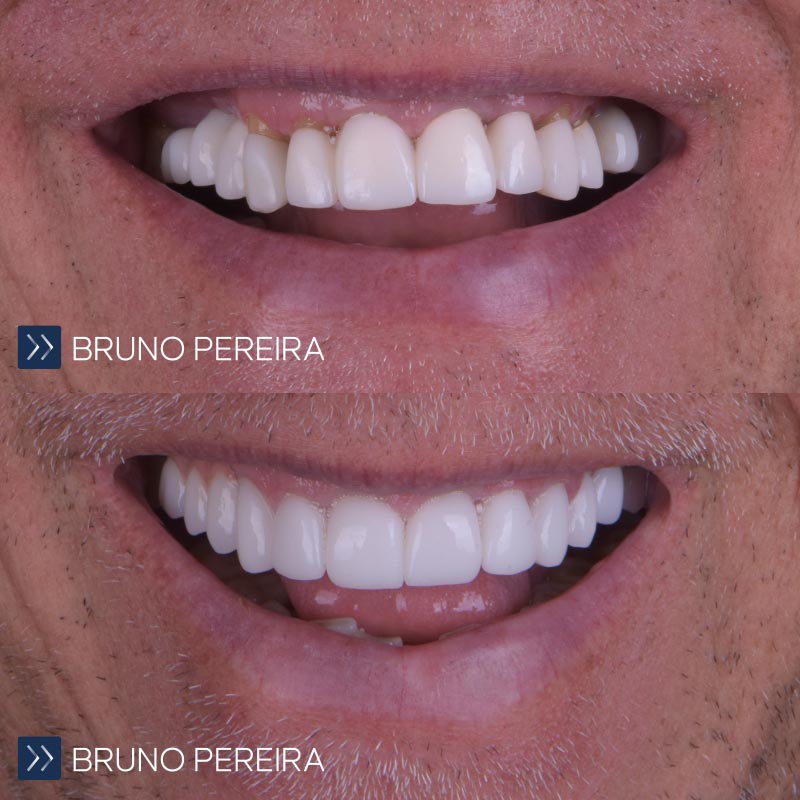
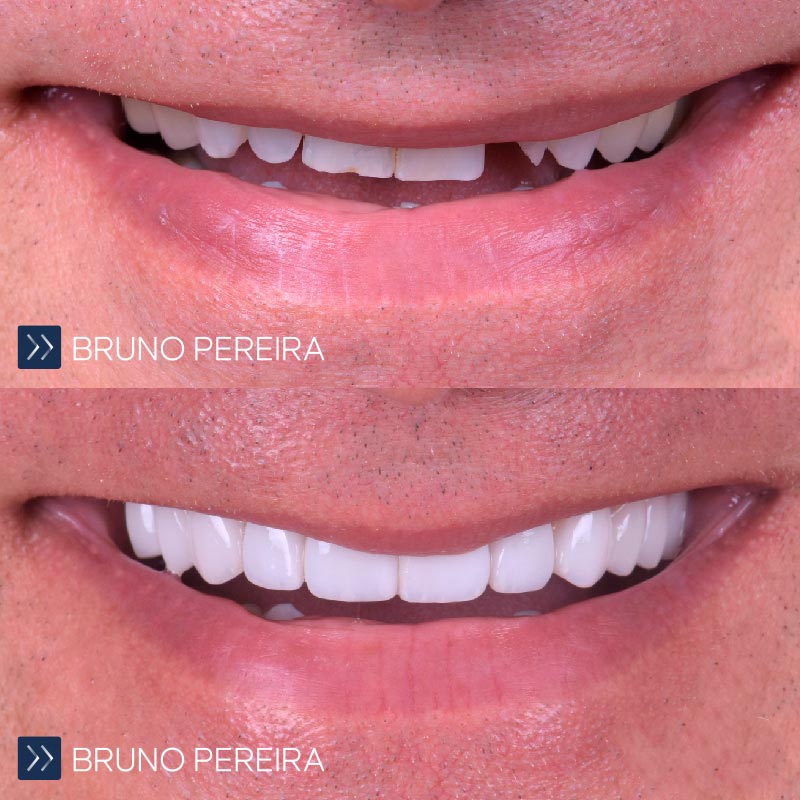
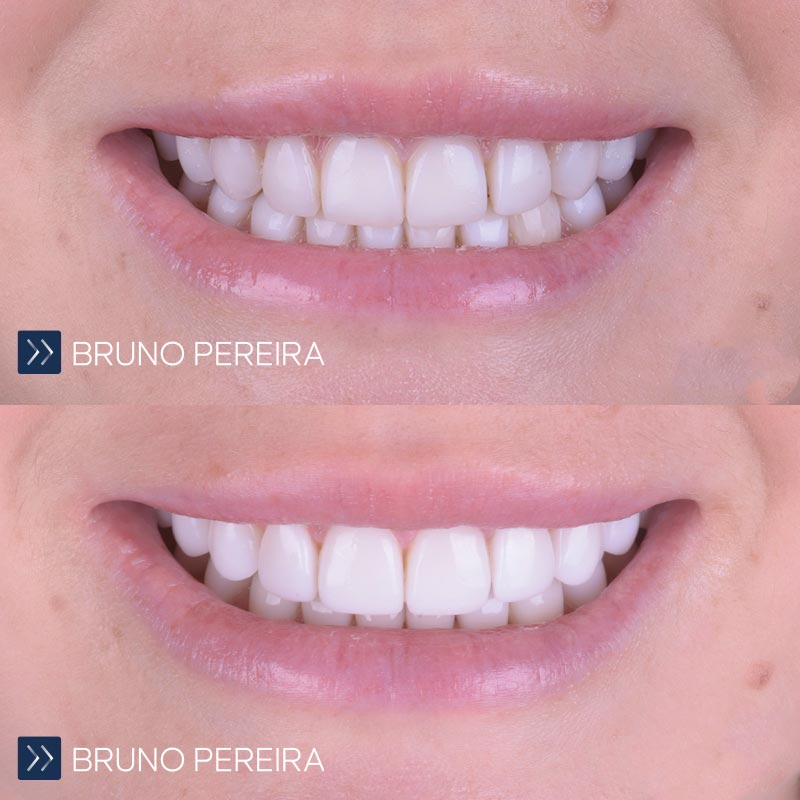
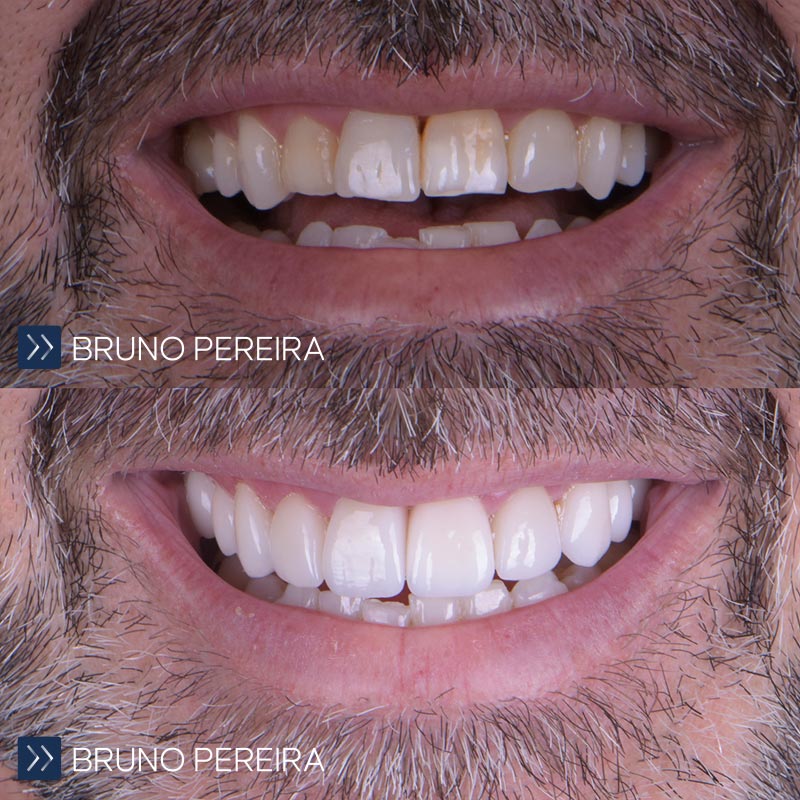
What about after treatment? The value of follow-up
This is where many clinics fail. For us, a treatment does not end when the veneers are placed. It is the beginning of a maintenance and control, in which:
- We carry out regular check-ups.
- We monitor the bite and possible micro-adjustments.
- We ensure the functional stability of the treatment.
In addition, we offer a 5 year guarantee, as long as the patient complies with the scheduled check-ups. This is our way of ensuring that the treatment is maintained at the quality with which it was conceived.
What happens if something goes wrong after treatment abroad?
Many patients who have travelled abroad return with complications: gingival inflammation, fractured veneers, occlusal problems, extreme sensitivity or even infections.
The problem is in these cases:
- They must travel again for care (if the clinic responds).
- Or go to a local dentist, who in most cases cannot take responsibility for and intervene in work done by others.
In our experience, most of these treatments cannot simply be “adjusted”, but must be completely redone, at significant additional cost and often with already irreversible damage to the tooth tissue.
FAQ's (Frequently Asked Questions)
Are all treatments in Turkey of poor quality?
No, there are excellent clinics in Turkey, but the risk increases when the main factor of choice is price or speed.
How do I know if I need veneers or crowns?
Only a professional diagnostic can determine this. Veneers are more conservative; crowns are used in cases where the tooth is very weakened or has already undergone surgery.
Can I see the result before starting?
Yes, we always make a mock-up so we can show and test the final design of the patient’s smile before any dental carving is carried out.
What happens if I miss my post-treatment check-ups?
Without checks, the guarantee does not apply and problems such as tooth displacement, fractures or loss of bite adaptation are more probable.
Do you offer any guarantee?
Yes, the veneer treatment includes a 5 year guarantee, provided that the patient attends the scheduled check-ups.
Conclusion
The purpose of this article is not to criticise any country or professional, but to invite reflection and responsibility. In aesthetic dentistry, there are no shortcuts. Successful treatment is always based on three keys: personalised planning, careful execution and constant follow-up.
Before undergoing any cosmetic transformation, make sure you are in the hands of professionals who prioritise your health, wellbeing and the long-term naturalness of your smile.
Turkey has been one of the most popular destinations for dental treatments due to its low cost and fast treatments, but other countries such as Dubai, Hungary, Thailand, Mexico or even Spain have also become more visible for offering fast aesthetic dental treatments at a lower cost. This trend, however, carries risks if the necessary clinical times are not respected.
Remember: a well-done treatment should not be rushed. Dental veneers, like any cosmetic procedure, require time, precision and professional follow-up. Aesthetics without function and durability is only a momentary illusion.

